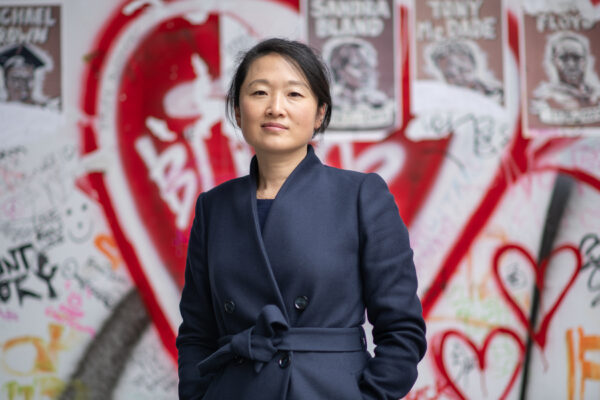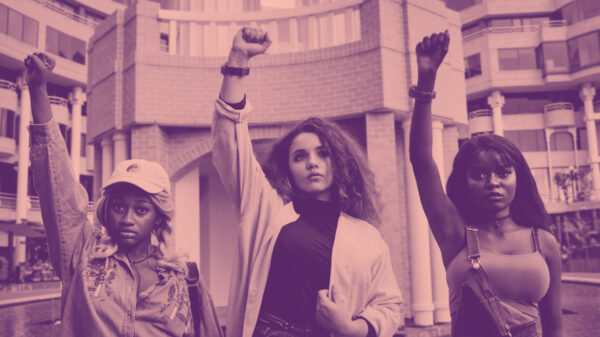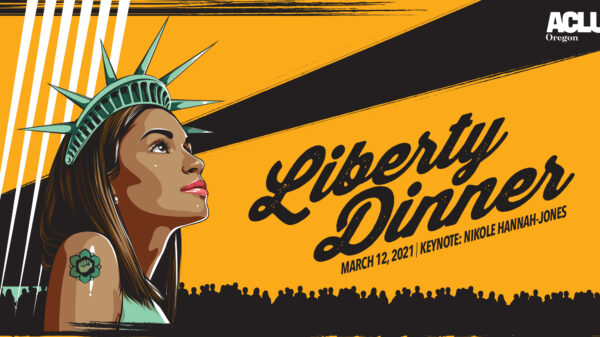Sandy Chung is an expert on tough conversations. She built her career on improving equity and safety in the workplace, leading on diversity, equity and inclusion (DEI) issues at major institutions and a willingness to have the hard conversations many people avoid at work. She also has worked specifically on sex and gender equity at several college and university campuses, including Santa Monica Community College, Stanford University, and the University of Portland, ensuring that women were protected from discrimination and harassment — from sports participation to sexual assault.
At the University of Portland, she was Vice President for Human Resources and Title IX Coordinator. Last year, Sandy made headlines with her efforts to engage the campus community in an honest conversation about how women, people of color, and members of the LGBTQ+ community were being disenfranchised by sexism, racism, and homophobia.
“Women and people of color are used to making accommodations and making do. When it’s dark, women are careful about how you go to your car, mindful about who may be near you, carrying your keys in a certain way to potentially protect yourself,” Sandy said. “We also make accommodations in workplaces. When there’s harassment, you restrict or limit yourself to navigate the problematic conduct. When this is occurring, it means you don’t have the same access as a white man. This is a fundamental civil rights issue, and when this occurs in spaces critical to democratic participation, this is also a civil liberties issue.”
Lamar Wise, ACLU of Oregon Board Member and Co-Chair of the Executive Director Search Committee, said Sandy’s track record for consistently leading with her values, despite risks to her career, made her an ideal candidate for her role.
“She’s bringing a level of gusto that is essential in this job,” he said. “I think we’re ready for her leadership and I think Sandy’s it.”
Making space for new voices
Equity concerns in many different types of spaces — from legislative spaces to workplaces to campuses — are not unique. The ACLU of Oregon has also been reckoning with its own challenges of ensuring a supportive, inclusive, and equitable work environment for people of all backgrounds and identities. The legal frameworks that address overt acts of discrimination and harassment are often not sufficient to navigate more subtly harmful behaviors, Sandy said. Microaggressions and tokenism continue to impact women and people of color in workplaces leading to higher rates of turnover, barriers to professional advancement, and other harms to women and people of color.
“A core part of diversity, equity and inclusion is not only about bringing in people with diverse backgrounds but also making sure that they’re empowered to speak and their viewpoints are considered, included, and embraced when making decisions,” Sandy said. “Before, when organizations focused just on diversity, it was easier. They just brought in people of different backgrounds. Now, we’re talking about inclusion, power-sharing, and equity, and this makes people feel uncomfortable, especially people who are comfortable with the way it is now or the way it’s been before.”
Wise said Chung’s track record of leading difficult conversations with calm and clarity stood out during the hiring process.
“The internal health of the organization was what mattered most to us. It was clear she was very thoughtful about her approach to really hard conversations and really sensitive topics,” Lamar said. “That stood out to me because those conversations were happening in the ACLU. She talked about how a team should work and how they should be a part of decision-making and visioning. That’s something we’re overdue for. ”
Striving for a better America
Sandy’s values on civil rights and liberties were seeded early, starting with an elementary school lesson on the Statue of Liberty. She learned that America was a country that people chose and that it was welcoming of people of all backgrounds, not only the wealthy and the powerful. She and her family, who immigrated from South Korea in the early 1980s, were among the many families who chose to start anew in the States — and in Portland and Oregon.
“As a kid — not knowing more fully some of the horrible parts of American history and the fact that it hasn’t lived up to its ideals in many ways — that idea of America reflected by the Statue of Liberty really called to me,” Sandy said. “It still grounds me today. Just because we haven’t lived up to the ideals of the Statue of Liberty yet doesn’t mean we shouldn’t try.”
Sandy had returned home to Portland for about a year — after spending 12 years in California — when Donald Trump was elected. Sandy felt immense sadness, anger, and fear that someone who openly denigrated immigrants, people of color, and disabled people and harassed women had been elected President.
“Based on his campaign, and the things that Trump was comfortable doing and saying, it was clear he was going to harm communities that are more vulnerable,” Sandy said. “He didn’t care about justice, equity, or treating people right. For a lot of people of color and immigrants, it was very clear it was going to be about race and nativism. And then to know that there was a big chunk of the U.S. who had voted for him — it was and is very hard.”
She became focused on finding communities and allies to team up with to fight against the racism, xenophobia, sexism and nativism that was being laid especially bare. Sandy remembers attending a meeting with a group of like-minded Portland lawyers who had gathered to discuss ways they could organize to protect vulnerable communities. She was unable to contain her tears in front of this group of folks who were mostly strangers. Her tears contained multitudes of realizations.
For many of the next four years, Sandy volunteered with the ACLU of Oregon as a legal observer at Portland protests. But as racist, xenophobic, and inhumane policies and rhetoric escalated at the federal level — from the Muslim ban to the separation of families and caging of brown children at the southern border to the racialization of the coronavirus by Trump and federal officials who referred to it as the “Chinese virus,” “Wuhan virus,” or “Kung flu” — Sandy felt torn between her desire to do more to fight these injustices and her need to fulfill her growing professional duties at the University of Portland. She simply didn’t have the capacity to do more.
Ultimately, the desire to do more pulled Sandy toward the executive director position at the ACLU of Oregon. The ability and expectation to combat inequities more directly was a decisive factor.
“I wanted to make sure I was in a position to do justice and advocacy work in a more direct capacity and not feel so torn,” she said.
Building bridges
Moving forward, Sandy hopes to lead the ACLU of Oregon further down the path of collaborative and equity-driven leadership — both internally and externally.
Internally, Sandy plans to assess and update the building blocks of equity at the ACLU of Oregon, including fair compensation, equity-oriented hiring practices, and practices for collective decision-making, sharing power and voice with her staff.
Externally, the ACLU of Oregon will focus on building grassroots power and capacity alongside partner organizations and communities, being mindful about when the ACLU of Oregon should lead versus follow and support. “It is really important that we do the work of justice with recognition that Black, Indigenous, and people of color communities have had to endure disproportionate harms for too long, and also with recognition of the wisdom, leadership, and perseverance of BIPOC communities,” Sandy said. “Our BIPOC communities have been fundamental to American democracy, and they will continue to be fundamental to our democracy.”
Lamar believes Sandy has the right skillset to achieve this goal.
“The ACLU has been known to be at the forefront of a lot of key issues, and as an organization, we stopped to question our role in the community,” Lamar said. “We don’t need to be the leaders of every issue. We want to follow the lead of community partners and play a support role. Whether it’s immigration or transgender lives or police brutality, at the end of the day, the folks on the ground should be driving the conversation with the full force and weight of the ACLU with them.”
Sandy said that the ACLU of Oregon’s priorities will be to focus their work and resources on supporting the most marginalized communities. The ACLU of Oregon’s priorities include a wide range of legal and policy work — from work supporting the rights of incarcerated individuals, to protecting free speech and protest rights to ensure that communities can use their constitutional right to speak up to the government and press for real change, to working to change racist and violent practices and systems of law enforcement and mass incarceration towards BIPOC communities, to work supporting social, economic, and environmental justice for marginalized communities.
“We have a lot of work to do to make sure that marginalized people and communities are treated right in America and that we are a democracy of all the people. But my greatest fear is that many people may become complacent because they believe that a Democratic White House will solve everything for us or people will stop being involved because they are exhausted from the continuing traumas caused by injustice, especially during the past four years,” Sandy said.
For those who are thinking of taking a step back, Sandy says the following wisdom from the Mishnah, written texts from the Jewish oral traditions, have helped guide her and provided respite to her. She hopes these words provide respite to others well.
Do not be daunted by the enormity of the world’s grief.
Do justly, now.
Love mercy, now.
Walk humbly, now.
You are not obligated to complete the work, but neither are you free to abandon it.



